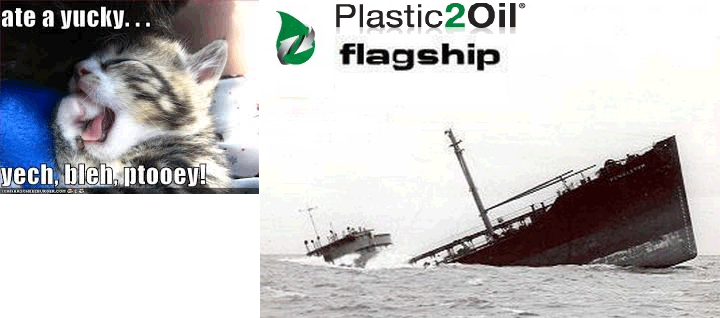The article says this: Karen Baase, a Cornell C
Post# of 43068
The article says this:
Karen Baase, a Cornell Cooperative Extension Agricultural Educator added, "In terms of plastic harvested from all of New York State's farms, that would translate into 2,800 tons per year."
It doesn't say "all of New York State's dairy farms." It says all NYS farms.
So I don't know how you made the leap to your conclusion just because the one farm mentioned is a dairy farm using the plastic " to cover our silages and feed storage."
If you are correct that the 2,800 tons is only from dairy farms, it is not because that is what is stated in the article.
http://centralny.ynn.com/content/top_stories/...into-fuel/
MADISON COUNTY, N.Y. -- Agricultural plastics are considered one of the most difficult products to recycle because they can often be very contaminated.
"We use about 2,000 pounds of ag plastic a year to cover our silages and feed storage. Right now, that's been going through our dumpster and going directly into the landfill," said Rick Carrier, the owner of ABC Farms.
Karen Baase, a Cornell Cooperative Extension Agricultural Educator added, "In terms of plastic harvested from all of New York State's farms, that would translate into 2,800 tons per year."
But now, for the first time, there is a way to recycle it. Madison County has entered into a PILOT program with JIB, Incorporated of Niagara Falls, New York to convert the plastic into diesel fuel.
"This is really a major, major breakthrough, and we are really excited to be working together. It is excellent use of our state dollars to be creating a program that's bridging between agriculture, the environmental protection, on a lot of levels because we're offsetting open burning and dumping and landfill protection, encouraging recycling," said Lois Lebitan, who works for Cornell University's Recycling Agricultural Plastics Project.
Rick Carrier the owner of ABC Farms in Canastota is the first farmer to participate in the program.
"It's not a real burden for us on a daily basis. We're always removing some plastic and I see this as a real benefit to the landfill and to our environment in general and we're excited about it and we're glad to be a part of it," said Carrier.
Madison County officials hope as more farmers participate in the program, it will add another economic benefit to the area.
"Our ultimate goal is to try to lure the company, JBI, to set up an operation at our agricultural renewable energy park at the landfill site and hopefully, that will open it up to the entire region to help solve this problem," said Jim Zecca, the Director of the Madison County of Solid Waste and Sanitation Department.
Those participating in the project say the space saved in the landfill and potential economic benefits will continue to help Madison County on the goal to become self-sustainable.
Agricultural plastics can be dropped off at the transfer stations in Cazenovia, Sullivan, Hamilton and the main landfill in the town of Lincoln.
For more information on what products can be recycled and how to prepare them, check out the brochure below.
The AG Plastic Recylcing Pilot Project
 (0)
(0) (0)
(0)Plastic2Oil, Inc. (PTOI) Stock Research Links

